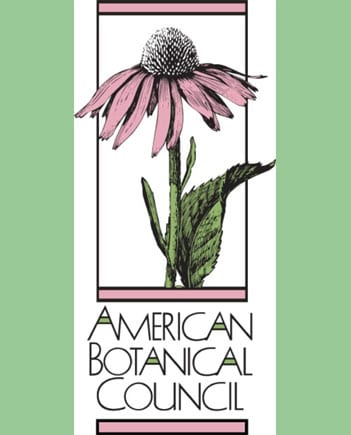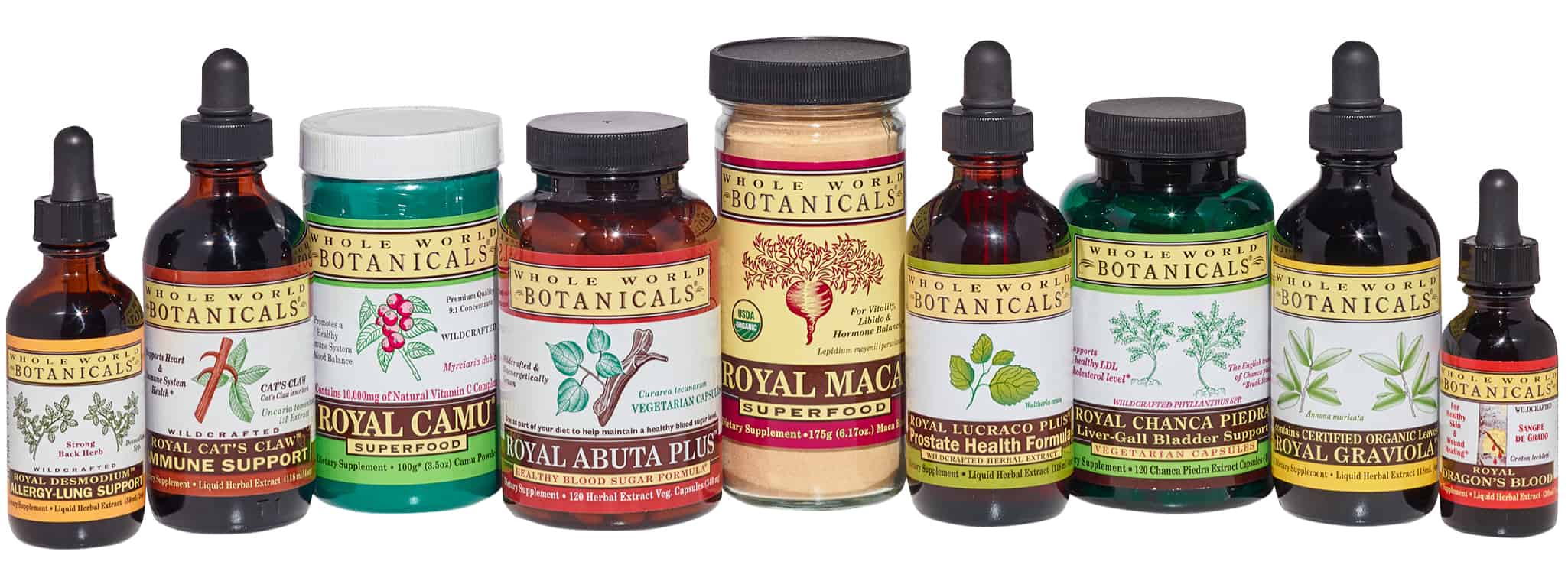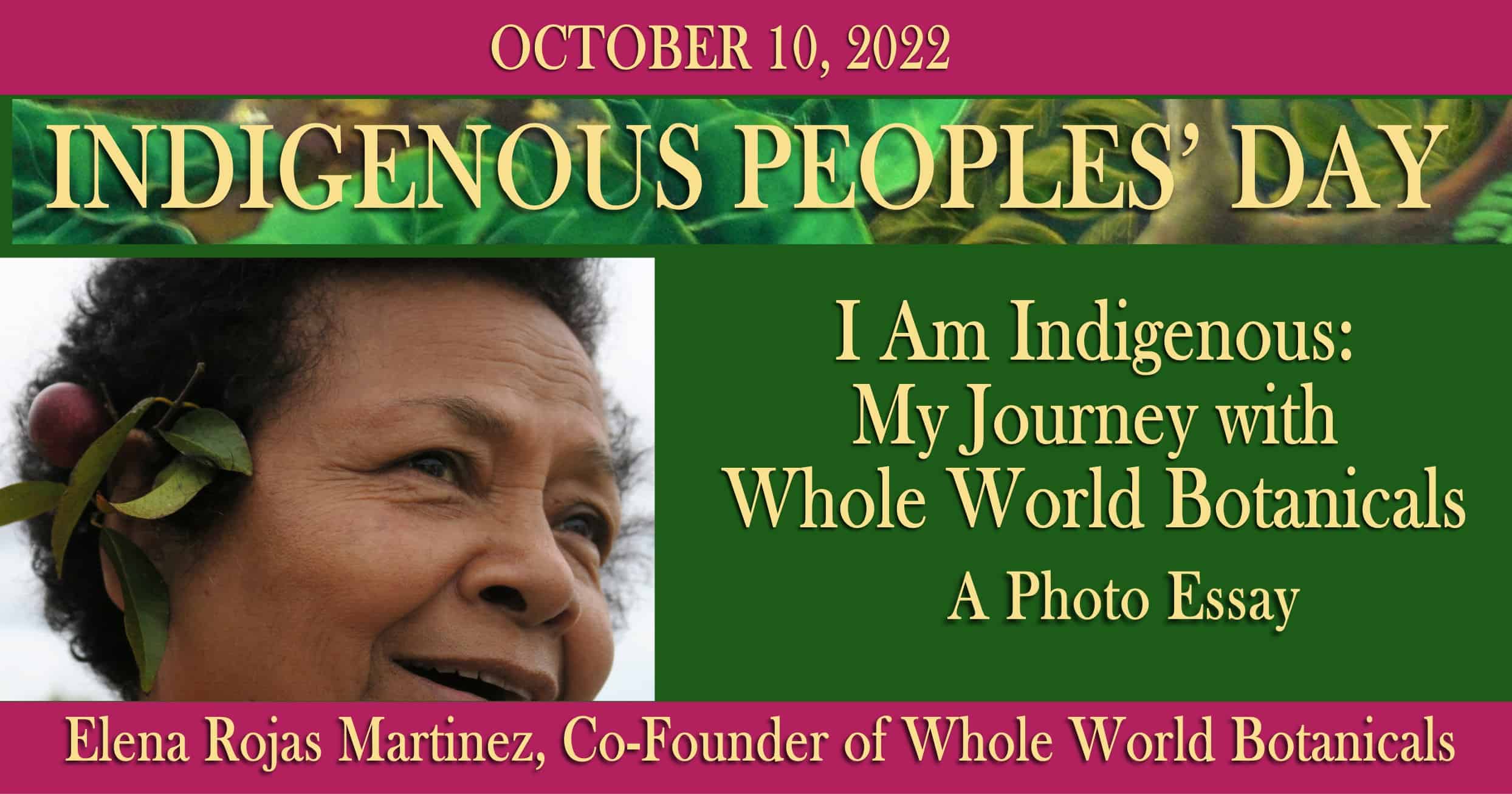
Elena Rojas Martinez, with camu camu leaf and berry in her hair
My name is Elena Rojas Martinez. My mother was an indigenous woman whose first language was Quechua, a native language of Peru. She did not permit her children to learn to speak her language for fear that we would suffer discrimination from Peruvian society, which was so identified with Spanish culture. People who spoke Quechua were disrespected, but my brother, sisters, and I did all we could to learn Quechua. I wanted to learn my mother’s language in order to understand her better and to be able to identify with her and her Quechua culture.

Elena holding freshly harvested
Desmodium plants with their distinctive purple flowers
My grandmother and great-grandmother were traditional midwives and healers. I followed in their footsteps, became a university-educated midwife, and delivered more than 1000 babies.

Elena Rojas Martinez, is a licensed midwife, and cofounder of Whole World Botanicals
When I emigrated to the U.S., I could no longer practice my profession, but I was able to give greater economic help to my family. Some years later, with my friend, Viana Muller, I had the opportunity to found a company, Whole World Botanicals.
Together, we imported medicinal herbs from the rainforest and Maca roots from the mountains of Peru, turning these plants into natural products to sell in the U.S.

Whole World Botanicals’ front and back catalog covers
From the beginning, Viana and I had a vision of being social entrepreneurs, based on a model of regarding our indigenous suppliers as our partners and our friends. We believed that their need to better their economic status—their health, the education of their children, and the basic comfort of their daily life—was as important as our desire to create an economically viable company that would help shift the practice of medicine in the U.S. to a more holistic, natural medicine model.
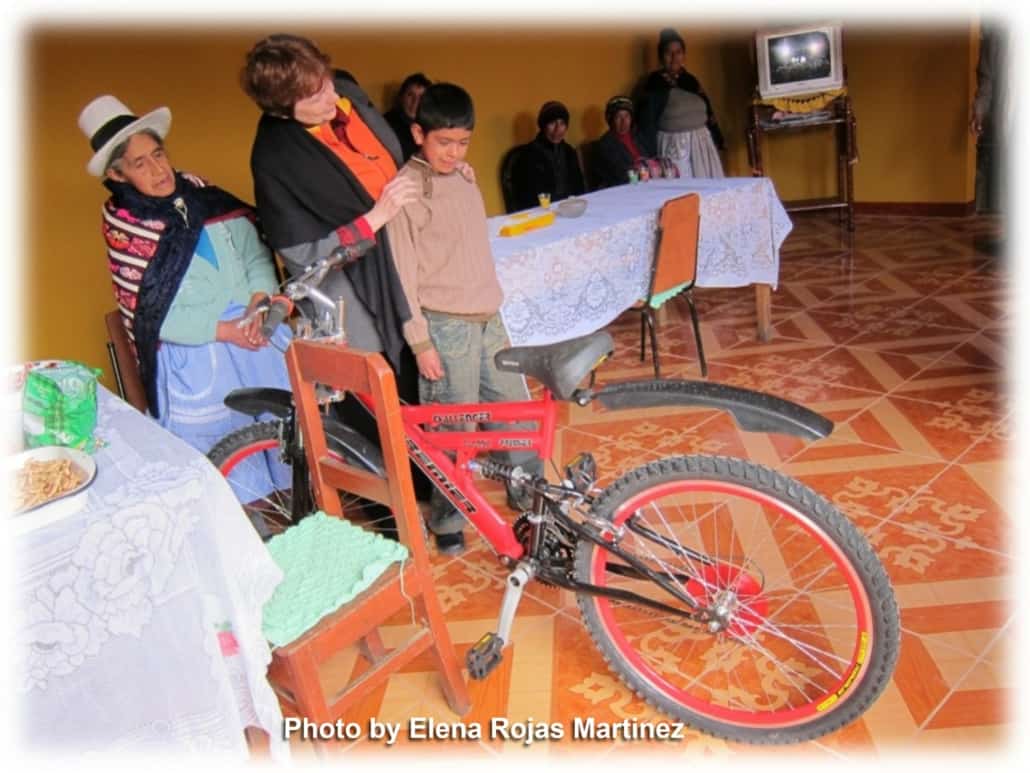
Viana Muller, co-founder of Whole World Botanicals, attends a party in
the home of an organic Maca farmer family in honor of her godson, David. The bicycle was a
gift from Viana to celebrate his first communion in the local Catholic Church.
When we first started our business, our main product was organic Maca roots, a cruciferous vegetable which helps both women and men achieve hormonal balance. It grows in the Andes at 14,000 feet above sea level.
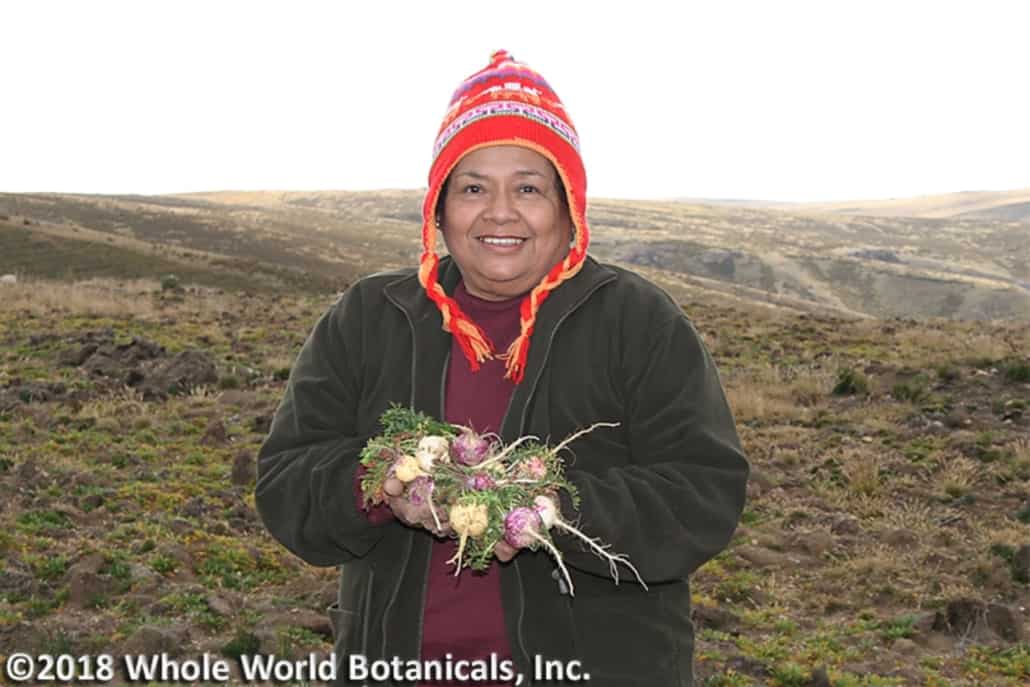
Elena in organic Maca field with roots
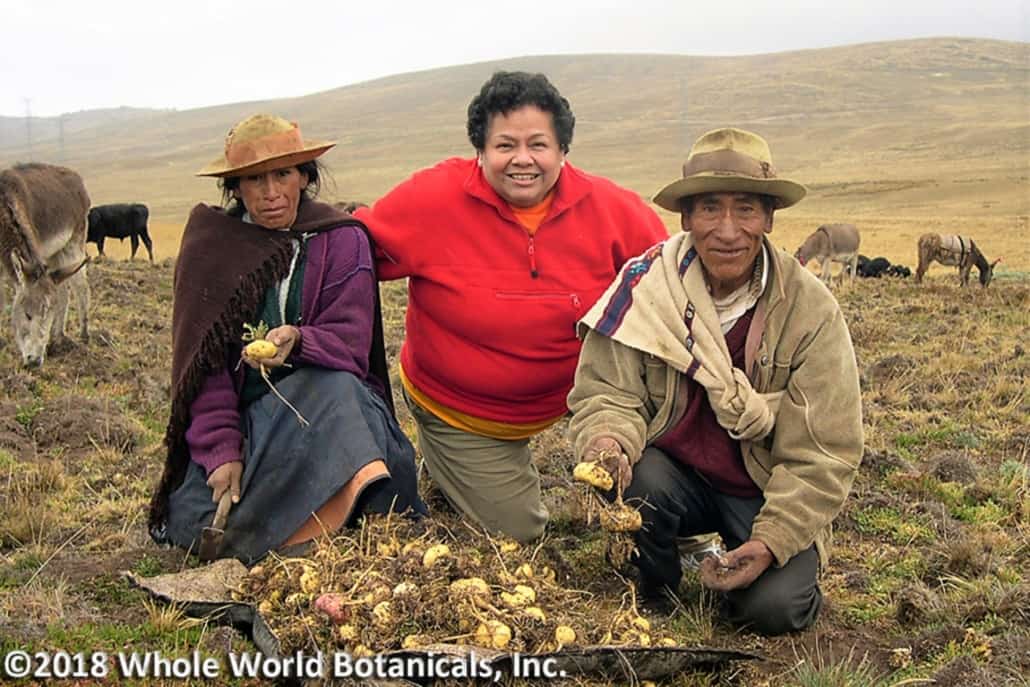
Elena with farmer
couple in their Maca field
We wanted to practice Fair Trade with our Maca suppliers. Would it be possible to do this? We needed customers who wanted to buy high-quality, natural products and who would realize that a fair price for the farmers had to be reflected in the price that they would pay for the product.
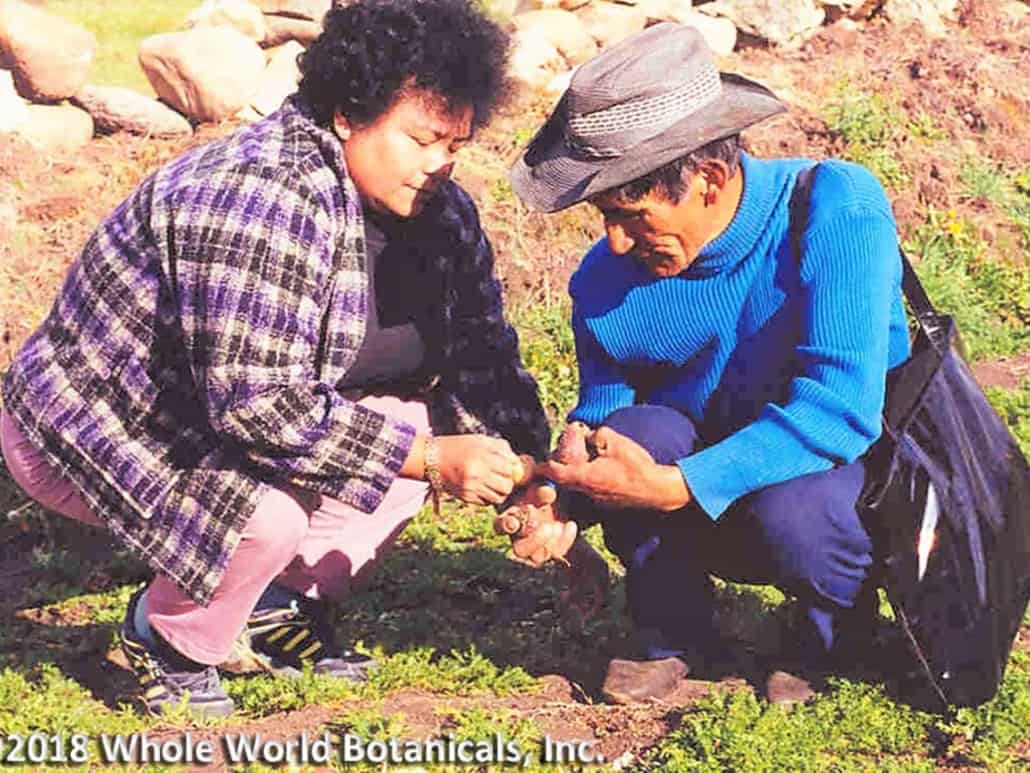
Elena in organic Maca field with farmer
In order to carry out Fair Trade practices with the farmers, we asked for and received help from a local non-profit non-governmental organization (NGO) that already had a relationship with the communities as a part of their mission. It was the collaboration of an NGO and our company that enabled us to accomplish our goal.

Viana with Maca farmers with organic Maca certifying field inspector
In the beginning of our relationship with the Maca growers, with the help of the NGO, we invited five communities — four of which were living in extreme poverty — who wanted to start cultivating organic Maca with a secure market. We asked that they establish amongst themselves what they considered a fair price per kilo for the dried organic Maca roots. They determined that in 1999-2000, a fair price, from their point of view, was two and a half times higher than the actual market price, which at that time was very low.
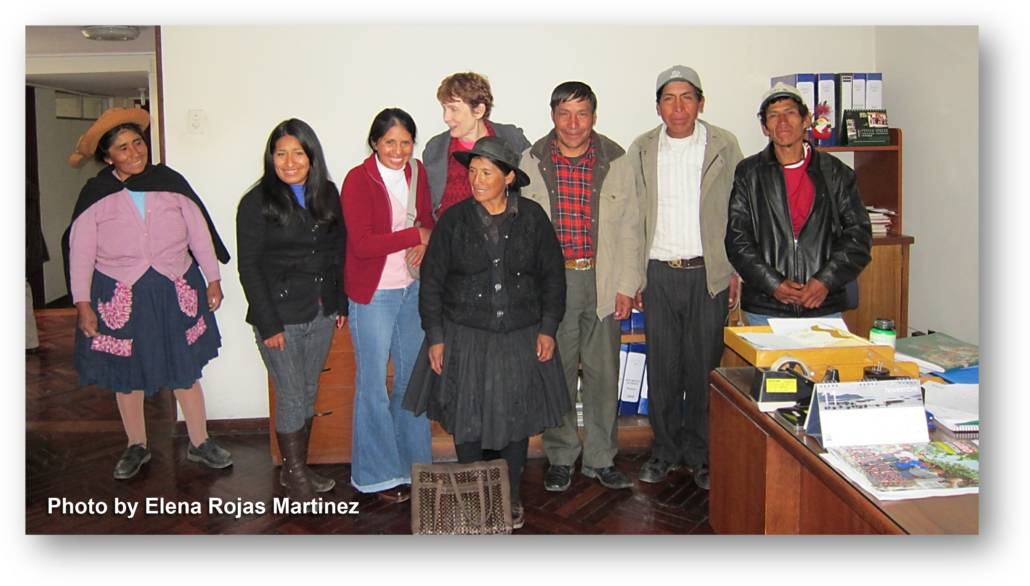
Viana with Maca farmer families inside our NGO partner’s office

Elena with three Maca farmers and freshly harvested organic Maca roots
Through fair trade, our suppliers have been able to buy a truck, or establish indoor plumbing in a home, and pay school fees to educate their children, even to the post-secondary school level.
We have had so much satisfaction over the almost 25 years of collaboration with our suppliers of organic Maca. We have always given interest-free loans to cover the expenses of cultivating and of harvesting the Maca, which are repaid in Maca roots. We can’t imagine doing business with them in any other way.
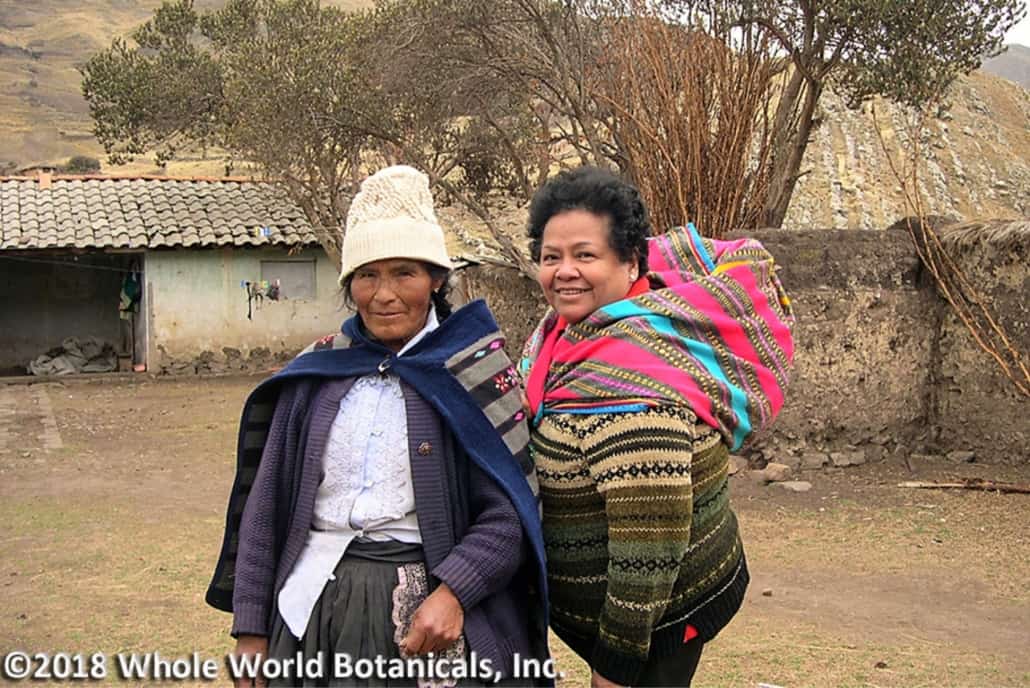
Elena with friend in Maca growing community
Indigenous societies are known for the non-exploitative relationships they have with each other. Growing up in a large, extended family, I have been fortunate to experience this quality of relating to others demonstrated over and over again. My family took responsibility for each other, and this generosity was extended to neighbors as well. But it is a challenge to establish these types of relationships in our competitive global society. Despite the contradictions, we have found it possible, based on our intentions, the consciousness of our customers, and a Fair Trade relationship as defined by our botanical suppliers.
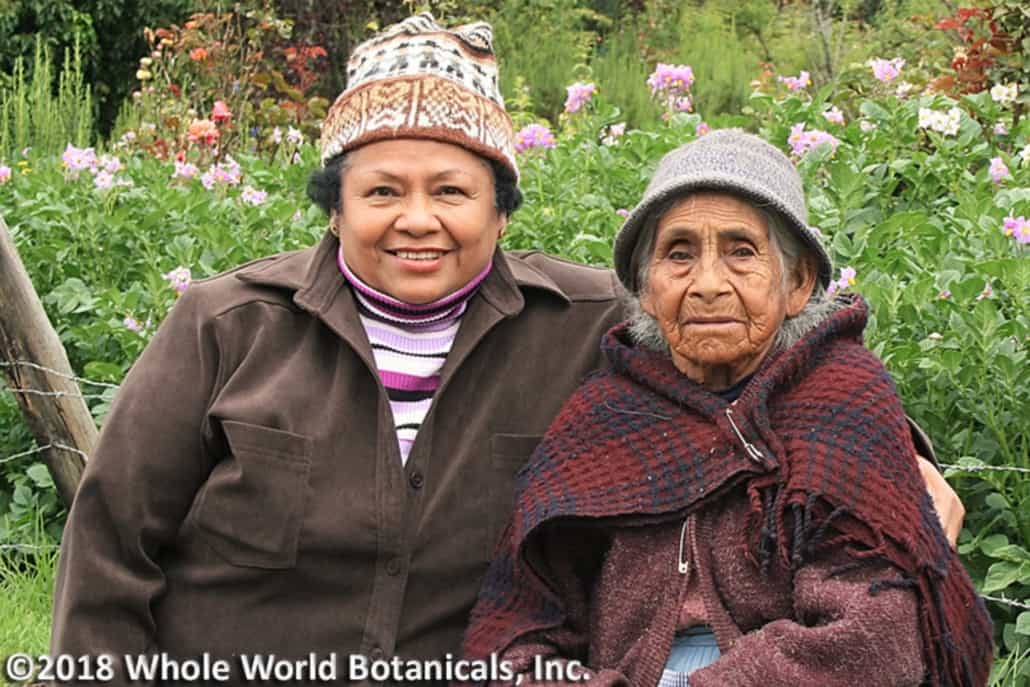
Elena with friend in her garden








